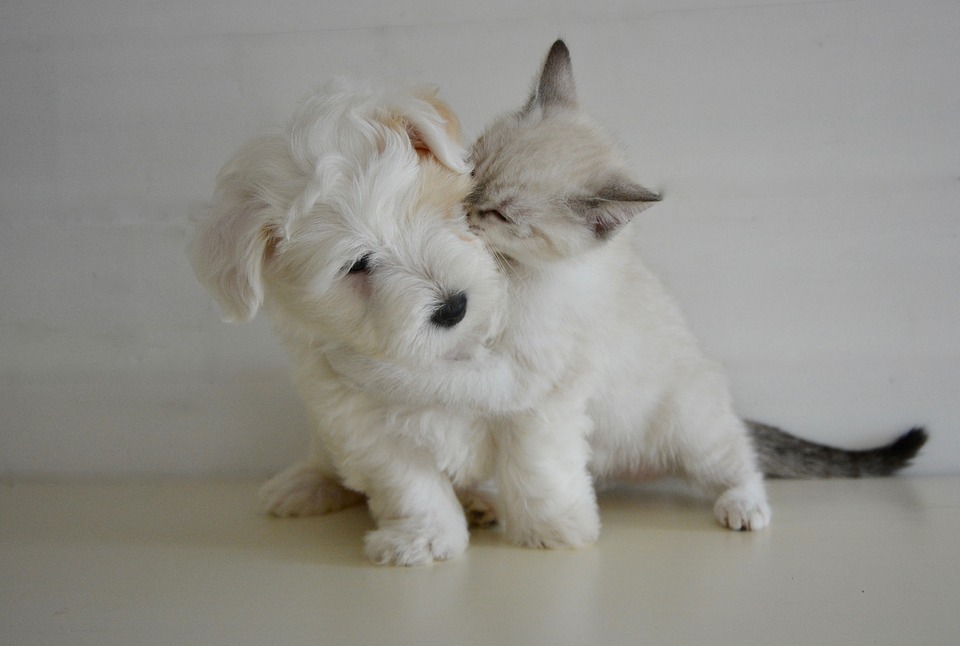
Both puppies and kittens need practiced socialization! The following recommendations are applicable to puppies 7-16 weeks and kittens 7-14 weeks.
Socialization of your young puppy or kitten must be practiced with consideration of the risks of illness and injury, and in compliance with your veterinarian’s guidelines. Socialization with safe implementation is not only possible, but strongly encouraged. If you have any questions about socializing your pet, please consult with your veterinarian.
| DO |
DON’T |
| DO start socializing your puppy early in a safe environment. 7 to 16 weeks is the most critical age for puppy socialization. Now is an important time to socialize your puppy or kitten with other healthy and vaccinated puppies, dogs, humans, children and friendly animals of other species. |
DON’T bring your puppy to dog parks, public parks, areas with heavy dog-traffic or around unknown dogs yet. At this age your puppy is most susceptible to infectious disease, so it is best to socialize your puppy in a safe and well-known environment, as well as at your veterinary hospital or a trusted puppy socialization class. |
| DO introduce your young puppy to a variety of objects. Exposure to a variety of novel stimuli can decrease the intensity of the response to novel stimuli in the future. This will help with travel, moving and further adjustments later in life. |
DON’T play with your puppy using your hands or feet as toys. This teaches the puppy that it is acceptable to bite, scratch and/or chew on human appendages. |
| DO bring your puppy to the vet for “friendly visits.” At these visits your puppy should receive praise and treats as well as be handled by multiple members of the veterinary team. This will help your puppy create positive associations with the veterinary hospital and veterinary staff. | DON’T forget about your puppy’s vaccination schedule. You should have a vaccination schedule from your veterinarian that you are abiding by. Your puppy should be receiving their core vaccinations, dewormer(s) and flea and heartworm prevention as directed. |
| DO gently handle your puppy’s paws, toes, mouth and ears. Gentle handling with positive reinforcement at an early age will help with future veterinary visits and grooming appointments, as well as at home handling (administering medication, brushing teeth, trimming nails, etc.) |
DON’T roll your puppy over onto it’s back and pin it down in an act of dominance. This can be very frightening and classically condition your animal to be afraid of humans, leading to fear induced behavior problems later in life. |
| Do ask your veterinary team if you have any questions in regards to puppy socialization, handling and/or training. We are here to assist, educate and help at all stages of your pet’s life. |
DON’T stop now! Socialization will continue to be important as your puppy grows into a juvenile, adolescent and young adult dog. Now that your puppy is fully vaccinated, it’s a good time to sign them up for a puppy training class, where they will continue to socialize and learn new skills. |



